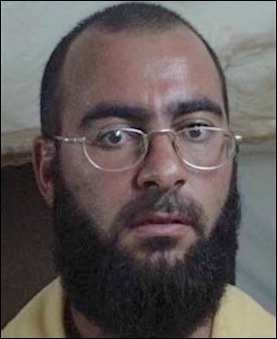It must be noted that daily, when Hillary was at home at White Haven, her private residence that she DOES not share with Bill, a State Department driver would show up daily to deliver a package. Inside contents were usually her copy of the Presidential Daily Briefing, call sheets and other diplomatic operational actions, all in printed form. Note…PRINTED FORM. That is NOT protected material, just ask General Petraeus.
There are clear violations in the law in these emails with regard to her shadow intelligence point person, Sidney Blumenthal, known as the Logan Act, however, no one ever seems to be prosecuted under this law. The email exchanges also demonstrate that Syria was actually aiding Libya, an agreement Qaddafi made decades ago with Bashir al Assad’s father. Hummm.
Is there a shredder somewhere in this mess? Heh…read on. Did files and records get buried with Tyler Drumheller? Oh, has anyone interviewed Samantha Power, the current UN Ambassador? Well she was part of the Libya mess too.
Hillary’s team was particularly interested in a documentary:
“The Oath of Tobruk,” Bernard-Henri Levy details how a self-promoting leftist intellectual persuaded a conservative French president to back the Libyan revolt.
Hillary Clinton Forwarded Huma Abedin Classified Info. for Printing
(Washington, DC) – Judicial Watch today released nearly 70 pages of State Department records that show that former Secretary of State Hillary Clinton and her top aides, Deputy Chiefs of Staff Huma Abedin and Jake Sullivan, received and sent classified information on their non-state.gov email accounts. The documents, also available on the State Department website, were obtained in response to a court order from a May 5, 2015, lawsuit filed against the State Department (Judicial Watch, Inc. v. U.S. Department of State (No. 1:15-cv-00684)) after it failed to respond to a March 18 Freedom of Information Act (FOIA) request seeking:
- All emails of official State Department business received or sent by former Deputy Chief of Staff Huma Abedin from January 1, 2009 through February 1, 2013 using a non-“state.gov” email address.
The new documents show that Hillary Clinton used the clintonemail.com system to ask Huma Abedin (also on a non-state.gov email account) to print two March 2011 emails, which were sent from former British Prime Minister Tony Blair (using the moniker “aclb”) to Jake Sullivan on Sullivan’s non-state.gov email account. The Obama State Department redacted the Blair emails under Exemption (b)(1) which allows the withholding of classified material. The material is marked as being classified as “Foreign government information” and “foreign relations or foreign activities of the US, including confidential sources.”
Another email shows that Clinton wanted to know how meetings in Washington, including a four-hour meeting concerning America’s war on Libya, would impact her Hampton vacation. Responding to an email that details the sensitive meetings in DC, Clinton emails Abedin on August 26, 2011, “Ok. What time would I get back to Hamptons?” Again, this email discussion takes place on non-state.gov email accounts.
The documents also include advice to Clinton on Libya from Sidney Blumenthal, a Clinton Foundation employee who, according to a Judicial Watch investigative report, also had business interests in Libya. Clinton wanted Blumenthal’s March 9, 2011, Libya memo to be printed “without any identifiers.”
The newly released Abedin emails include a lengthy exchange giving precise details of Clinton’s schedule using unsecured government emails. The email from Lona J. Valmoro, former Special Assistant to Secretary of State Clinton, to Abedin and Clinton reveals exact times (including driving times) and locations of all appointments throughout the day. Another itinerary email provides details about a meeting at the United Nations in New York at 3:00 on Tuesday, January 31, 2012, with the precise disclosure, “that would mean wheels up from Andrews at approximately 12:00pm/12:15pm.”
“These emails show that Hillary Clinton isn’t the only Obama official who should be worried about being prosecuted for mishandling classified information. Her former top State aides (and current campaign advisers) Huma Abedin and Jake Sullivan should be in the dock, as well,” said Judicial Watch President Tom Fitton. “The Obama State Department has now confirmed that Clinton, Abedin, and Sullivan used unsecured, non-government email accounts to communicate information that should now be withheld from the American people ‘in the interest of national defense or foreign policy, and properly classified.’ When can we expect the indictments?”

 Abu Muhammad al-Adnani “seeks to inspire zeal in the soul.”
Abu Muhammad al-Adnani “seeks to inspire zeal in the soul.”
 Mugshot of Abu Bakr al-Baghdadi, 2004.
Mugshot of Abu Bakr al-Baghdadi, 2004.
